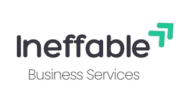With over 2 billion active users worldwide, WhatsApp has evolved from a simple messaging app into a powerful business communication platform. In 2025, businesses are increasingly turning to WhatsApp Marketing to reach their audience with personalized, real-time messaging. It’s fast, direct, cost-effective, and offers a high engagement rate, making it a top digital marketing channel.
What is WhatsApp Marketing?
WhatsApp Marketing refers to using the WhatsApp platform to promote products, offer customer support, share updates, and nurture leads. It can be executed through the WhatsApp Business App or the more advanced WhatsApp Business API, which is ideal for medium to large enterprises.
Why WhatsApp Marketing Works
- Direct Communication: WhatsApp offers one-to-one messaging that feels personal and immediate.
- High Engagement Rate: Messages on WhatsApp have open rates as high as 98 percent.
- Real-Time Responses: Businesses can solve customer queries instantly, leading to higher satisfaction.
- Multimedia Sharing: Send images, videos, PDFs, product catalogs, and more to enrich your campaigns.
WhatsApp Business vs WhatsApp Business API
| Feature | WhatsApp Business App | WhatsApp Business API |
|---|---|---|
| Best For | Small Businesses | Medium to Large Enterprises |
| Messaging Limitations | Manual Messaging | Automated & Bulk Messaging |
| Integration Support | Limited | CRM, Chatbot, Automation Tools |
| Cost | Free | Paid, via official providers |
Key Features for Marketing
- Labels: Organize customers by lead stage, order status, or category.
- Quick Replies: Save and reuse frequently sent messages.
- Catalogs: Showcase products/services with images, pricing, and descriptions.
- Broadcast Lists: Send one message to many recipients who have saved your number.
- Automated Messages: Set greeting, away, and quick response messages.
Effective WhatsApp Marketing Strategies
1. Build a Quality Contact List
Focus on gaining opt-in users. Promote your WhatsApp number through your website, social media, and offline channels. Offer something valuable like a free guide, discount, or exclusive content in return for sign-ups.
2. Use Personalization
Address users by name, tailor content to their interests, and make them feel valued. Personalized messages increase conversion rates.
3. Leverage Automation
Use chatbots and CRM tools via WhatsApp API to automate lead generation, customer support, appointment booking, and more. This saves time and ensures round-the-clock interaction.
4. Engage with Interactive Content
Share quizzes, polls, how-to videos, FAQs, and tips to keep your audience engaged. Keep the conversation two-way.
5. Offer Real-Time Support
Quick and reliable customer service on WhatsApp improves trust and loyalty. You can also send order updates, shipping confirmations, or service alerts instantly.
WhatsApp Marketing Use Cases
- E-Commerce: Send cart reminders, product updates, and delivery notifications.
- Healthcare: Appointment reminders, teleconsultation links, and health tips.
- Education: Course updates, exam alerts, and study material distribution.
- Travel & Hospitality: Booking confirmations, itinerary details, and feedback requests.
- Banking & Finance: Transaction alerts, payment reminders, and KYC updates.
Tips for Compliance and Best Practices
- Always get explicit consent before sending promotional messages.
- Respect user privacy and allow them to opt-out easily.
- Avoid spamming. Send only relevant and timely messages.
- Keep content short, clear, and actionable.
- Monitor performance metrics like click-through rate (CTR), open rate, and response rate.
Top Tools for WhatsApp Marketing in 2025
- WATI
- Twilio API for WhatsApp
- Zoko
- Freshchat
- Yellow.ai
These tools allow integration with CRM platforms, help set up automated workflows, and provide detailed analytics.
Conclusion
WhatsApp Marketing is no longer optional; it is a necessity in a customer-centric digital landscape. With its unmatched open rates, instant communication, and personalization capabilities, WhatsApp helps brands build trust, increase engagement, and drive results.
Whether you’re a startup or an enterprise, integrating WhatsApp into your marketing strategy can take your business communication to the next level.

